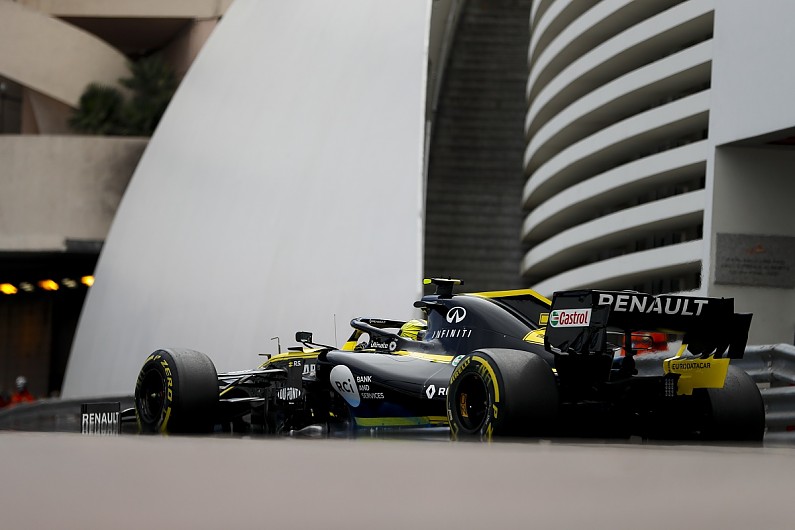Renault Formula 1 boss Cyril Abiteboul has revealed that a conrod reliability issue handicapped the firm’s engines in the first part of the 2019 season, but has now been addressed.
While it was well known that Renault had suffered some MGU-K issues this year, the fundamental problem with its V6 had hitherto been kept under wraps.
It came to light for Renault when Nico Hulkenberg retired in the second race of the season in Bahrain, forcing the team to adopt “containment measures” that reduced performance in China and Azerbaijan while a solution was sought.
That was implemented when all four Renault-powered cars took new V6s at Barcelona and, having initially run them in a conservative mode in Spain, Renault is now confident enough to turn the engines up from this weekend in Monaco.
“This winter we were given the opportunity to properly focus on power gain, and competitiveness gain,” said Abiteboul.
“What it meant was we consciously decided to focus on performance, to the detriment of reliability.
“It means that a number of engines that should have been used on the dyno to secure reliability were actually used to develop performance.
“What it meant was a very good start in terms of engine power, but reliability that was below standard.
“Two reasons, one which you know which was the MGU-K, and one which you don’t know, which was that Nico’s failure in Bahrain was actually a conrod failure – so typically a part that you don’t want to break, because it’s a part at the bottom of the engine, and a fundamental part.”
Abiteboul admitted performance was compromised at Shanghai and Baku as Renault could not use full power.
“It was a problem that we didn’t identify over the winter, we didn’t really have a back-up plan, but at the same time I can say that it was a blow for the organisation that meant some containment measures after the race that was massively reducing the power that was delivered for the following races,” he said.
“I can tell you it was also an amazing reaction from everyone involved, and in five weeks we managed to identify the problem, understand the problem, come up with a new design, source new parts, test the parts, sign off the parts on complete cycles, and build new engines in enough quantity for ourselves and McLaren in time for Spain.
“So that was the reason for the introduction of the new engine in Spain.”
Abiteboul is confident that Renault is now able to use its engine’s full potential.
“In Barcelona we’ve done one step of power, not the full, because we wanted to get the feedback of Barcelona, and do some inspection, and make sure that everyone was OK,” he said.
“But there will be another step from this weekend onwards, so basically we are back to the competitiveness level of the engine at the season start – which was really strong.
“Just to put some figures into perspective, the gain that we were aiming to make over 12 months on the engine side was 50kW, we’ve done 40 and we’re aiming to do another 10 over the course of the season, in the best mode.
“From our analysis we see we are now the same level as Ferrari and Mercedes in the race, and behind Ferrari in qualifying – when we will be back to that level which is the case from this weekend on.”
Abiteboul conceded that it was hard to convince sceptics that Renault has made progress.

“The problem is that by losing Red Bull we are losing the opportunity to demonstrate the progress of the engine,” he said.
“We knew that, that is why we need to pick up from where Red Bull left it and demonstrate with our own team the progress of the engine.
“Anyone who is a bit of a professional in F1 would be able to look at the top speed, look at the GPS, and see exactly what is going on.
“OK there are downforce levels that are chosen that can be a bit different, but we see a trend and the trend in my opinion doesn’t lie.”
